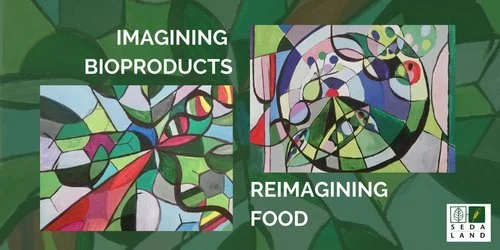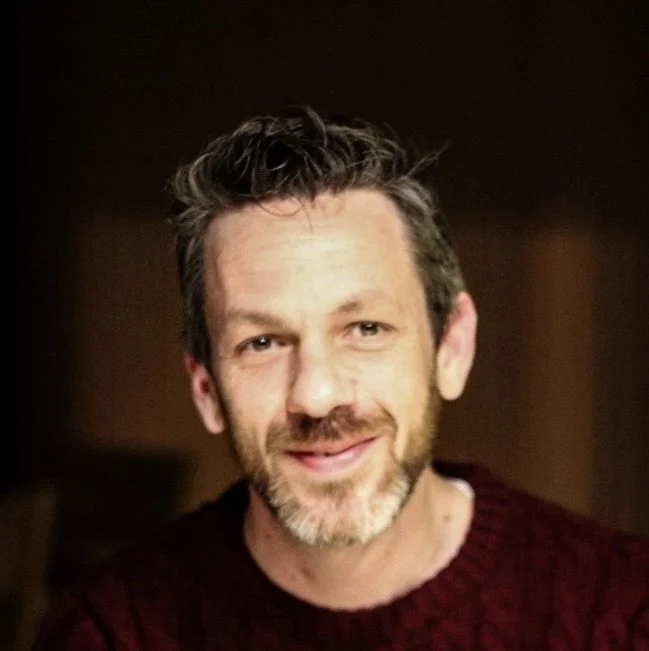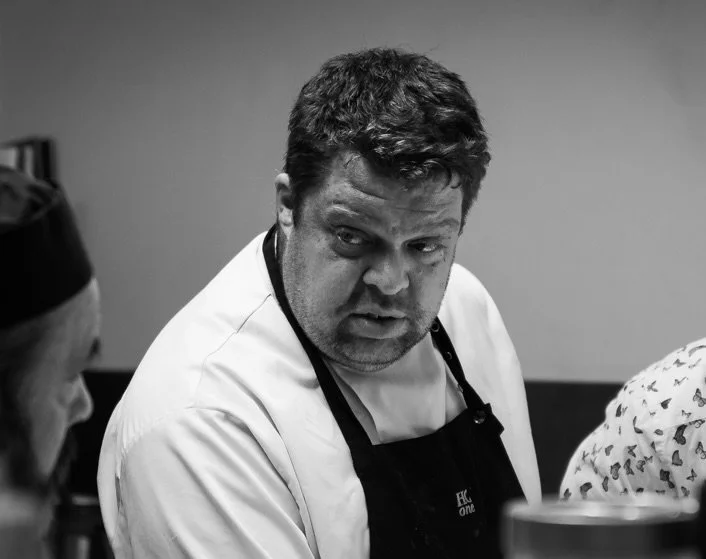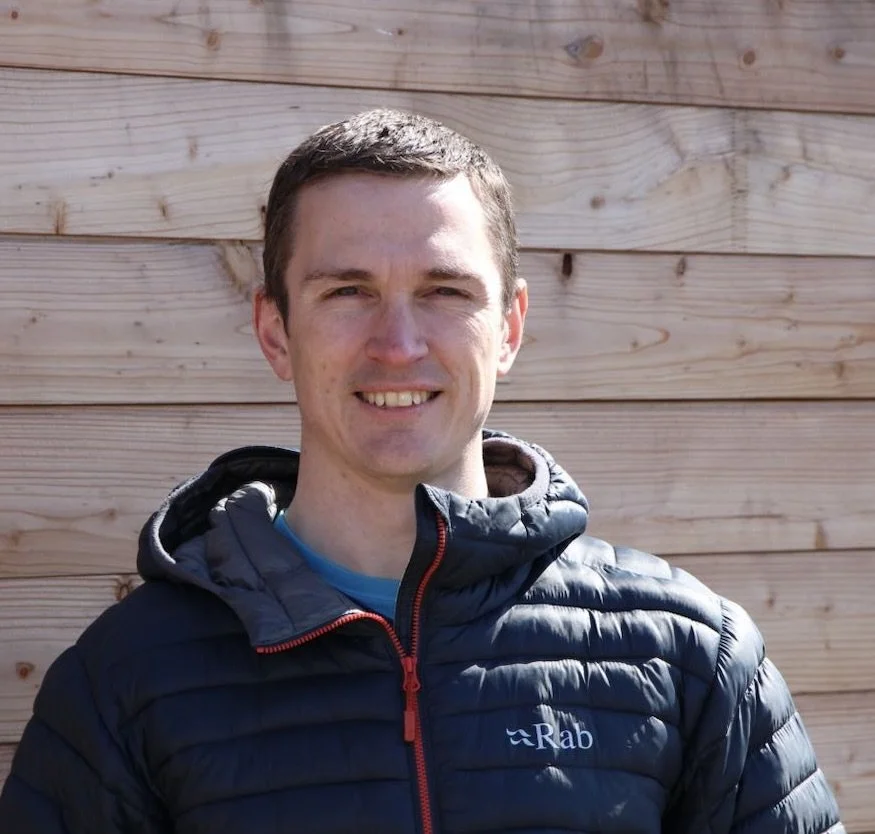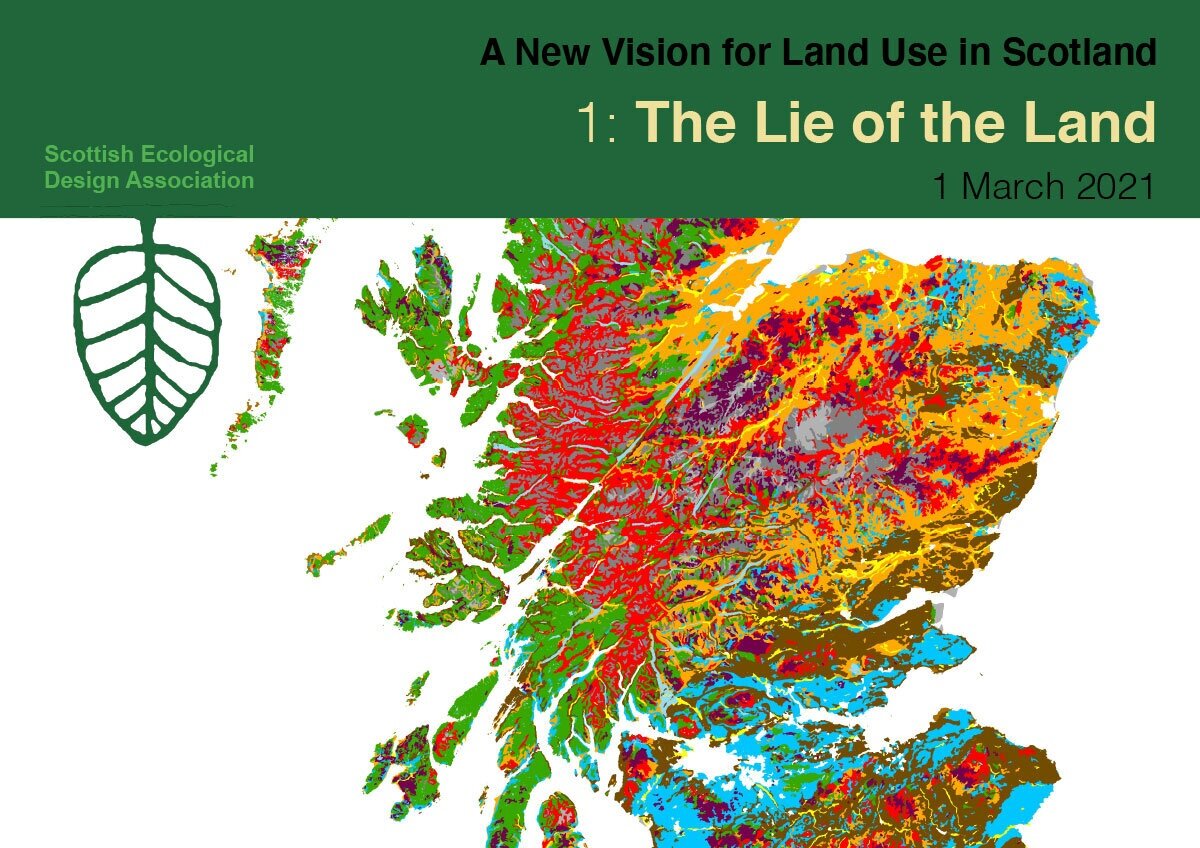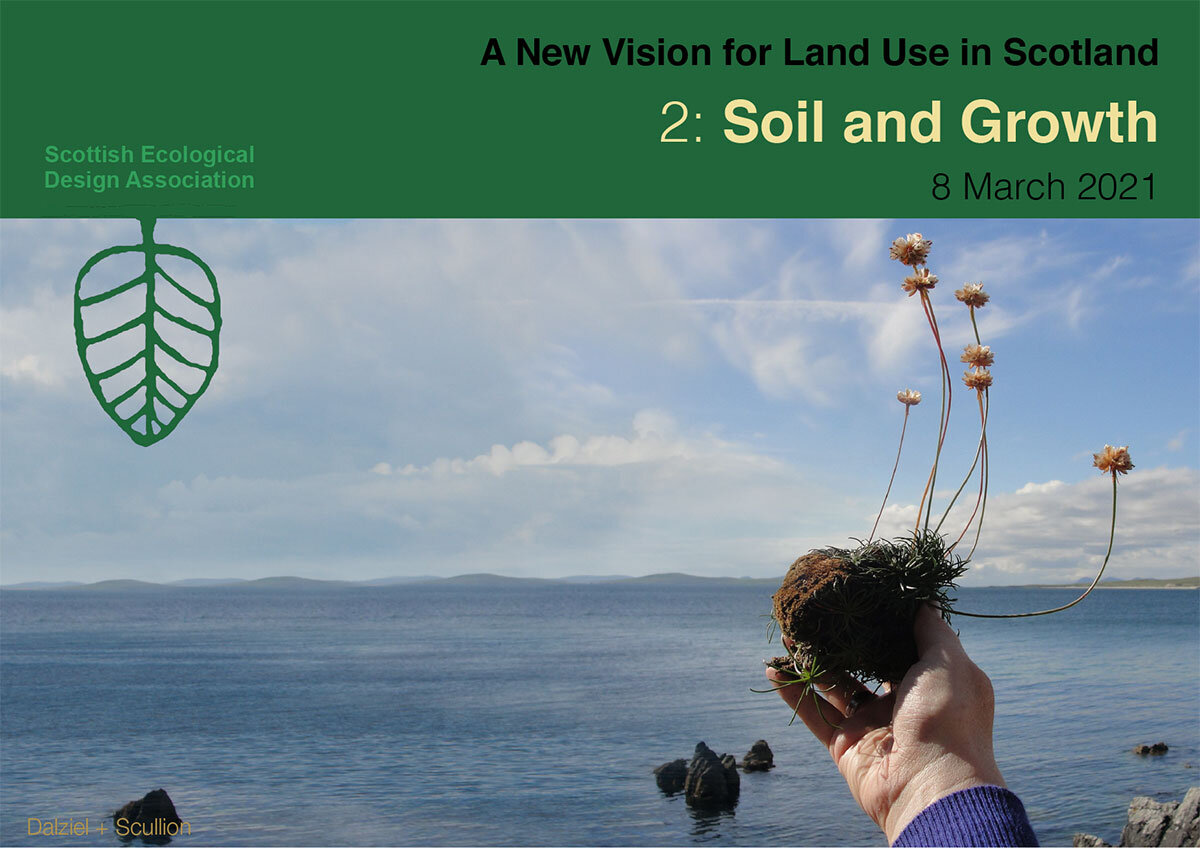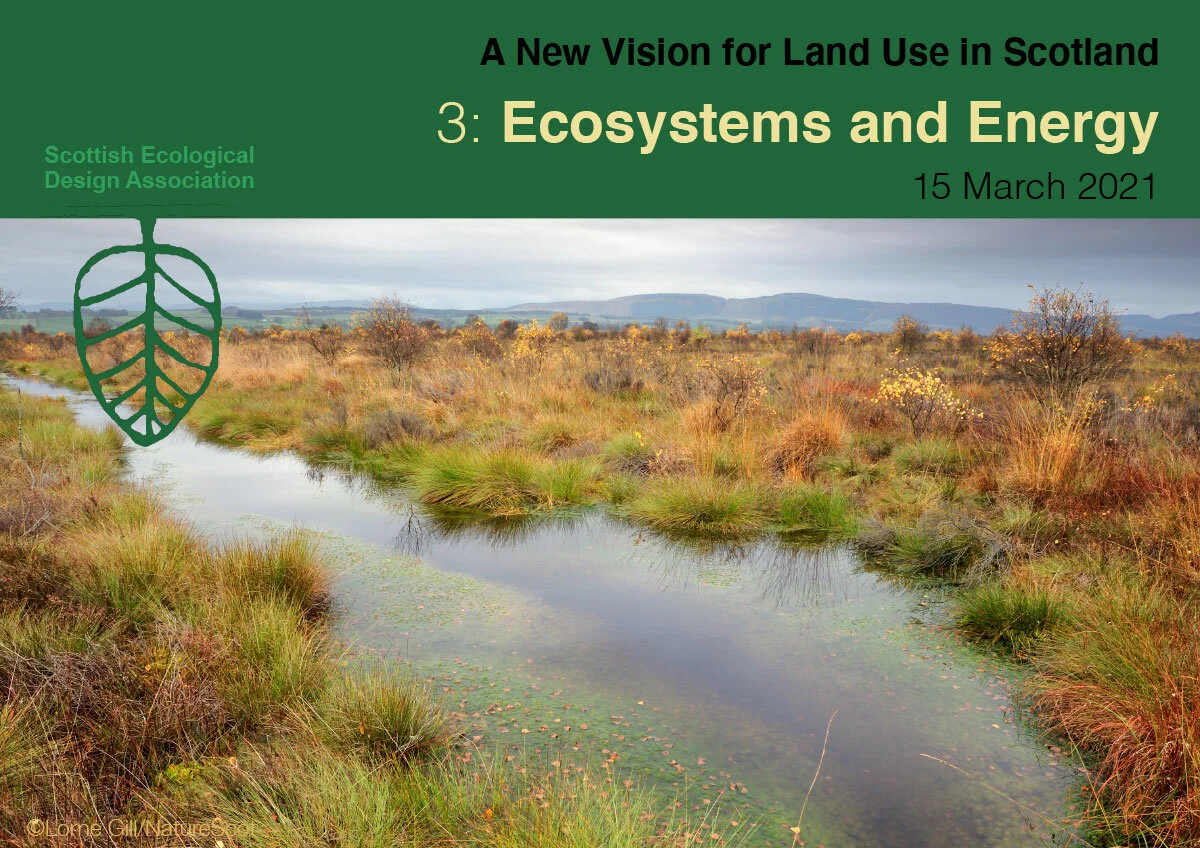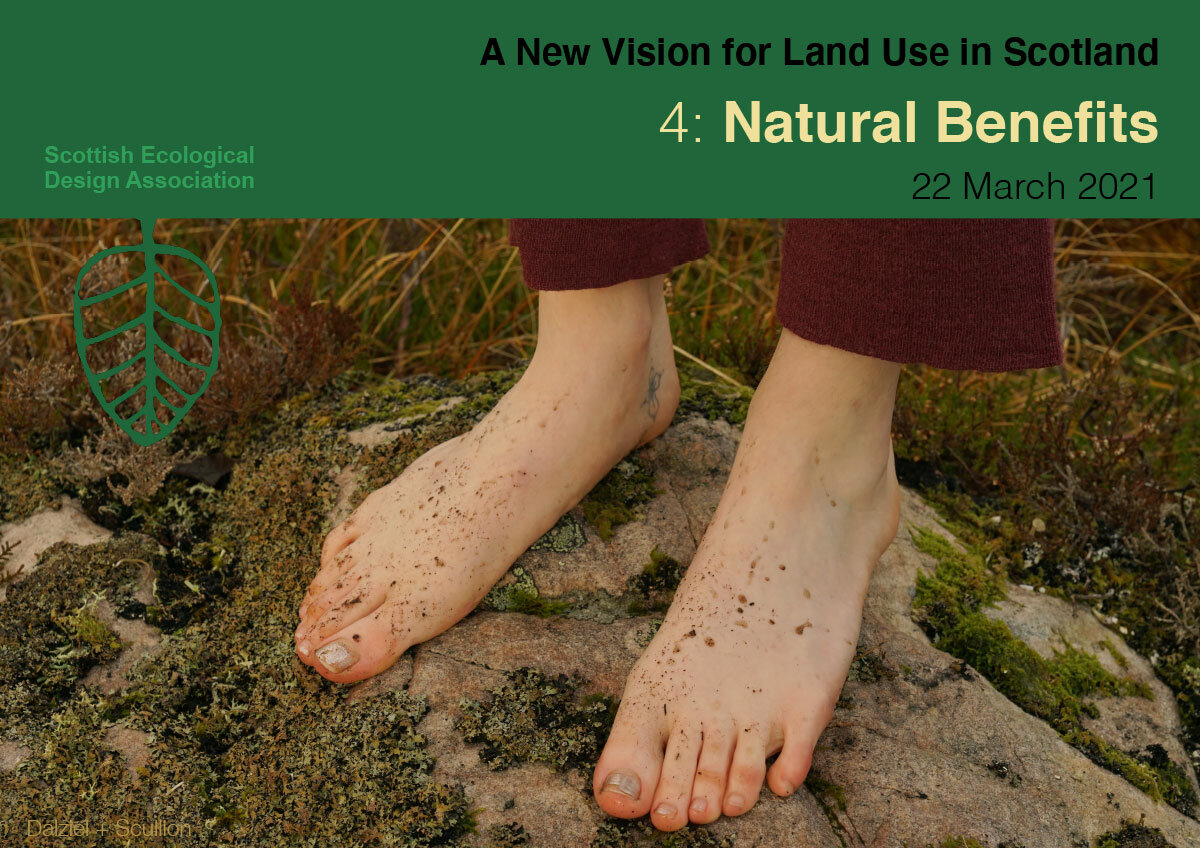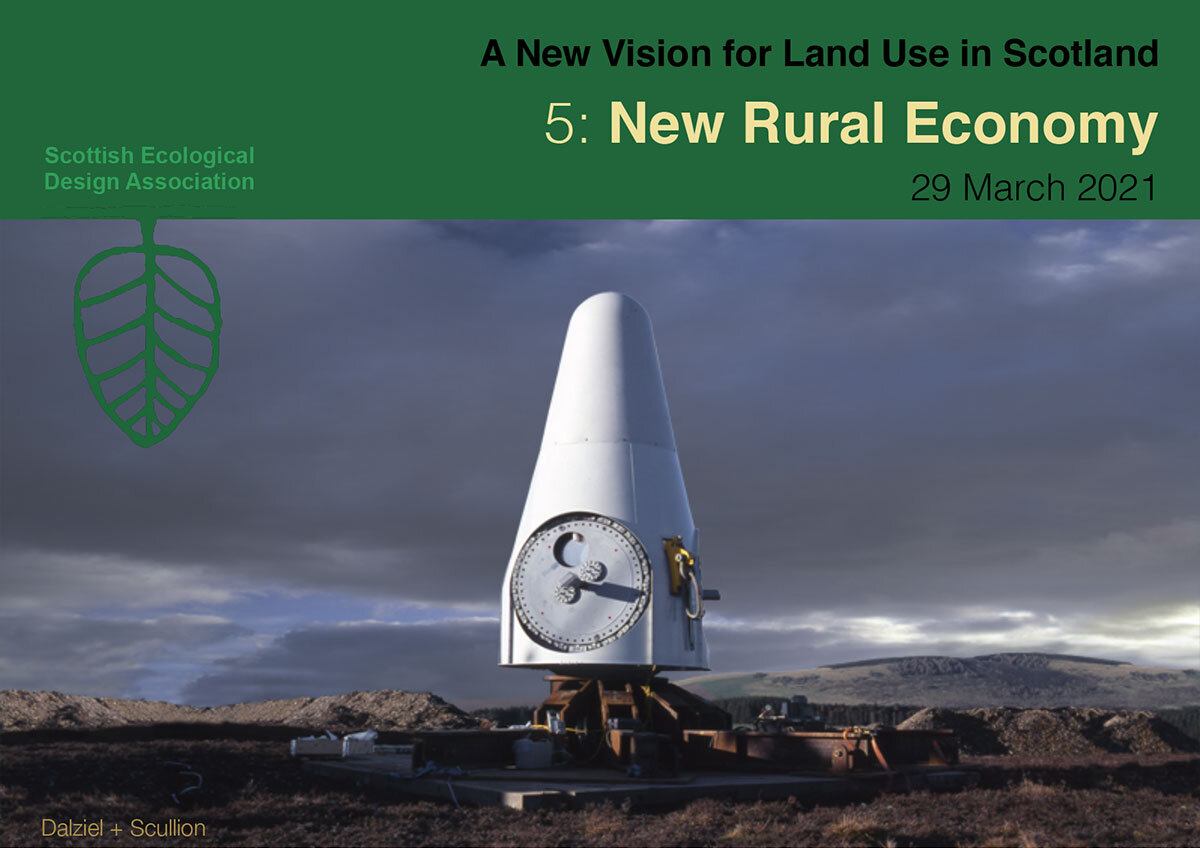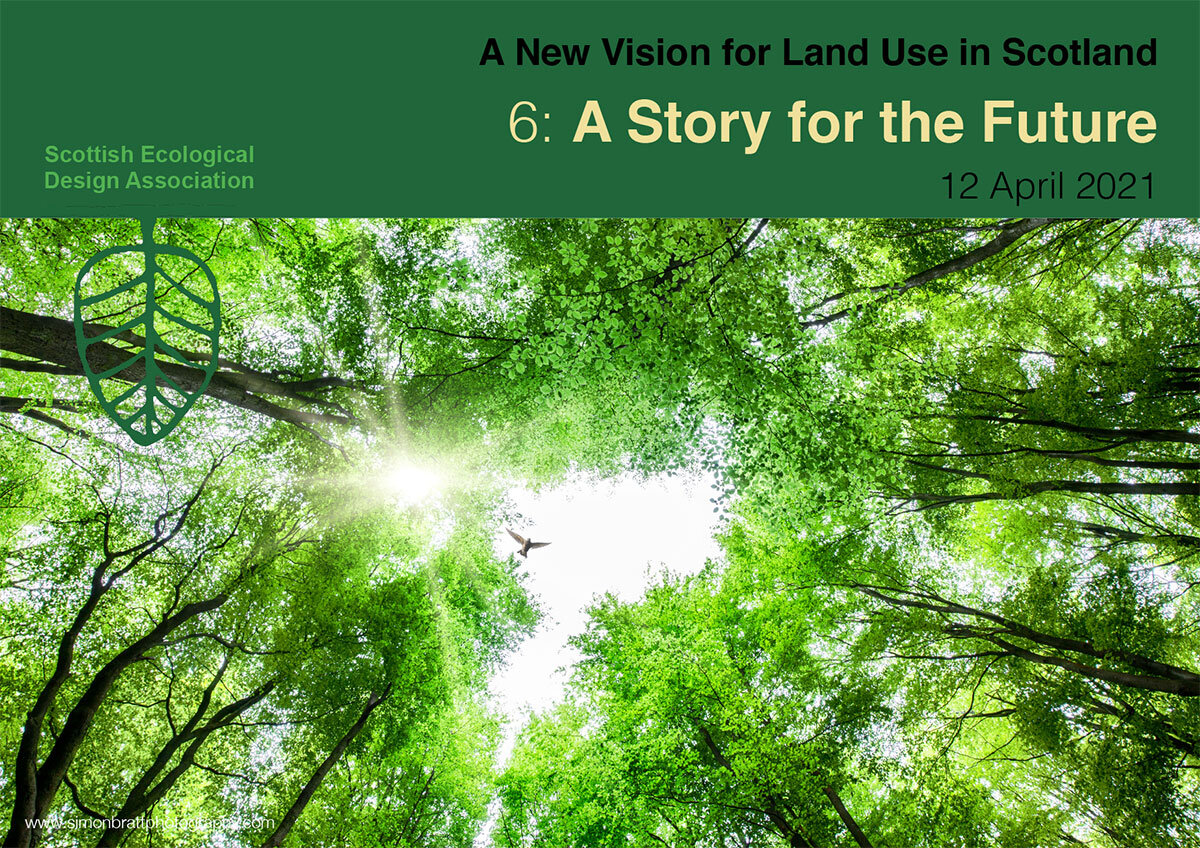Land Conversations / Re-Imagining Food
Imagining Bioproducts and Reimagining Food
In Scotland we urgently need to change the way our natural and cultural resources are produced and consumed if we are to tackle climate change and reduce environmental impacts. Developing a bioeconomy using renewable biological resources from the land and the sea – including crops, forests, fish, animals and microorganisms - to produce food, materials and energy will be a key part of this.
A bioeconomy would bring new industries and jobs that would move Scotland to a more sustainable future. But it will need to be carefully managed, in ways that avoid resource depletion and environmental degradation. This double bill will look at the opportunities for bioproducts and the development of a much more nutritious food industry. A bioeconomy would enhance biodiversity, restore soil fertility and air and water quality while improving people's health and wellbeing and creating new jobs.
The two events will cover questions including: does Scotland produce enough food, fibre and timber for our needs, or are crucial commodities imported? Is the land managed sustainably or is it degrading? Do people and communities have a say in how the land around them is managed and what it produces? And does reliance on imports lead to ecological destruction in other parts of the world?
SEDA Land invites you to join a panel of experts who are committed to regeneration, innovation and self-sufficiency who will explore the range of positive developments which are either already underway or could be applied in Scotland. They will discuss the best ways of using land in a way that will create sustainable industries that work with rural communities, giving participants the opportunity to discover new and exciting possibilities from people who are already doing it.
Second event - Reimagining Food
Monday 20 June 2022, 4-6pm
This is an online event only.
While land has provided food for millenia, changes in farming over the last century have brought a disconnect between people and food. Science and technology have enabled a huge rise in productivity, but globalisation has encouraged cheap imports that disadvantage local producers. All civilisations rely on security of the staples – cereals, legume pulses, and vegetables. But today in Scotland crops for direct human consumption are grown on less than 5% of the agricultural land. While standards in Scotland remain high, soils are generally productive and yields good. Positive recent changes include the rise of community-growing though small farms, the reopening of supply chains for locally-grown foods and the pioneering of new food types. This SEDA Land Conversation will examine how Scotland can regenerate its farming and food production sectors so that most cereals, pulses, vegetables and livestock products are of a higher nutritional value and grown and respected locally. The panel will include people who have already started innovating with vertical farms, microalgae photobioreactors and other cutting edge developments as well as traditional bioproducts.
For information on the first event: Imagining Bioproducts
SPEAKERS
CHAIR
Gail Halvorsen,
Chair SEDA Land
After working for Michael Hopkins and Partners in London Gail established Halvorsen Architects in 1994, moving to Edinburgh in 1999, where she specialises in ecological design for residential and nursery school buildings. Gail was chair of ECAN (Edinburgh Chartered Architects Network) from 2001-3 and on the board of Gorebridge Community Development Trust for 10 years, being chair from 2014-16, where she project managed the £2.5m community centre, Gorebridge Beacon. She was a Civic Trust Award assessor 1997–2011 and has run environmental projects with primary schools. Gail is an events organiser for the Scottish Ecological Design Association and after organising A New Vision for Land Use in Scotland: Six Conversations in Spring 2021 established SEDA Land.
panel
Dr Mads Fischer-Moller
professor of Food Policy Scotland’s Rural College
Mads is professor of Food Policy at Scotland’s Rural College and leader of SRUC’s upcoming Future Food Systems Research Centre, aiming at discovering transformation paths towards more sustainable food systems. Mads has arrived at SRUC from a career in food policy. He was policy advisor to the Danish Government on nutrition, food culture, gastronomy and SME’s (2011-2015) and has most recently been responsible for all common Nordic food policy development and implementation in his position as senior advisor for food policy at the Nordic Council of Ministers. Here Mads was also leader of the Nordic Food Policy Lab; an initiative from the Nordic prime ministers aimed at communicating Nordic food policy solutions to global audiences through co-creating “policy labs” and active online outreach.
Dr. William Clark
Bioeconomy Research Analyst, Zero Waste Scotland
After completing a Cell Biology BSc with the University of Stirling, William gained his PhD in Aquaculture studying the physiology of anti-oxidant pathways in sequential hermaphrodites. William then joined the multinational Sustainable New Ingredients to Promote Health project as part of a BBSRC/DfID programme where he explored and developed novel feed ingredients rich in omega 3s across aquatic and terrestrial plants, seaweeds, microalgae, fungi, bacteria, and insects. Upon realising he was working in the circular bioeconomy, and that the platforms he was exploring would become critical as future ‘alternative’ proteins, William immediately joined Scotlands circular economy experts Zero Waste Scotland. William now provides policy and technical support across circular feeds, foods, and non-food applications, and is incredibly passionate about advancing the circular bioeconomy at national and international levels.
Rupert Waites
Director, Buck and Birch
As a very young man Rupert swapped the grittiness of West Granton for the wonders of the West Highlands. It was a move that saw him fall in love with the wild, wild food and plants at an early age in such places as Mallaig, Canna and Sutherland before finishing school and returning to Edinburgh where a career as a chef beckoned. The start of a young family saw him swap Edinburgh for Thailand and then East Lothian where, for the last 12 years, he has been on a personal food journey that went right to the start of it all. The wild. Tasty findings were funnelled into Buck and Birch, a pop up dining experience and now drinks company where he is director, forager, head of R&D, chef, production manager and floor sweeper. With the motto Wilderness Refined he and business partner Tom Chisholm aim to help redefine the way we look at the world through the food we eat and drinks they make. Happiest when talking to plants, Rupert also enjoys feeding people, dreaming of wild food forests, growing things and talking a lot.
Nikki Yoxall
Grampian Graziers
Based at Howemill, in Aberdeenshire, Nikki and her husband produce beef from native and rare breed cattle, undertaking ecological restoration through their business Grampian Graziers. Using agro ecological methods such as mob grazing and agroforestry they employ a low input system, selling beef through direct sales. Nikki is currently undertaking an MSc in Sustainable Food and Natural Resources, researching the ecological benefits of mob grazing and is a Farmer Ambassador for the Soil Association.
Graeme Warren
Director, Vertegrow
Graeme is the co-founder and Director of Vertegrow, a vertical farming company based in Aberdeenshire. Spun out of an Aberdeenshire arable farm, Vertegrow is Scotland’s first scale “Controlled Environment Agriculture” facility: growing herbs and leafy greens all year round indoors. Graeme is passionate about growing high quality, healthy food sustainably and making best use of resources. Starting his career as a property lawyer, Graeme has worked as an in-house lawyer in the energy industry and now brings those skills to oversee the management of the farm business and the development and expansion of Vertegrow, with an eye on sustainable crop production and energy efficiency.
Desmond Cave
Business Development Director, Beta Bugs Ltd
Des has worked for 40 years in the safety of chemicals as a toxicologist. Working in drug development, agrochemicals, chemicals and medical device industries. For 20 years as a toxicologist and was Director of Toxicology and for 20 years as a consultant in various toxicology-based roles and for various different companies. He has held position such as CEO, Managing Director, Chief Scientific Officer, Director of Toxicology and Director of Business Development for companies all of the world, including China, India, USA, France, Hungary and Denmark. In 2020 he retired, but found this boring and so in 2021 he has worked for Beta Bugs where he is working on promoting and educating people on the farming of Black Soldier Fly from how to grow them, why to grow them, what you can do with them, the benefits of farming them and their use in animal feed and as human food.
ARTISTIC CONTRIBUTIONS
Each of the conversations will include artistic contributions, from poets, musicians and video artists, bringing a cultural perspective to each event. Each of their pieces will be a different take on the changing rural landscape around them, the climate emergency and the unstable connections between the human and the natural worlds. Some will be provocative about the way forward, some reflective of the current situation, and others just a joyous celebration of nature.
The contributors tonight are:
Tom Lyne, composer and bassist
Of Birds and Bugs
Chris Powici, poet
Let Them Eat Oatcake! a future food fantasia
The Gordon Schools S2

